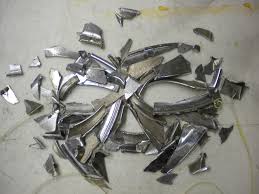Masks
By Anthony Casperson
12-3-16
Surprisingly(?), I’ve been thinking a lot about masks lately. Not literal masks, but the ones that we wear to hide our true selves from those around us. Whether it’s a fake smile upon our faces, or answering “I’m okay” to a person’s “How’re you doing?” when in reality our internal monologue is screaming, “I’M DYING IN HERE!!!!!”, masks come in many shapes, sizes and types.
Perhaps it was last week’s post about not being forced to pretend to be happy that’s made me think about masks. Masks that I used to wear. (Some of which like popping back up again and again.) Masks that I’d used to protect me. Masks that came to nearly be the death of me.
Masks are nothing new. We’ve seen superheroes wear masks to protect their “real” selves. Differentiating between personas. And we’ve seen real-life heroes like doctors and fire fighters wear masks to protect themselves from things that could kill them. But protection isn’t the only reason why masks are worn.
Some masks hide the real person beneath them so that they can portray themselves as someone other than who they really are. In ancient Greek culture, actors wore masks for each different character they played so that they could portray more than one role in the same play. The mask gave them the ability to be many different people on stage, but none of those people were the real actor.
When Jesus called the Pharisees, and the religious elite of his day, “hypocrites,” it was to these masked actors that Jesus referred. Not only as an insult to people who wouldn’t be found dead at a Greek play, but also because he was saying that these elite people weren’t being their true selves. And while it’s easy to point a finger at the Pharisees, laughing at how ridiculous they were, we’re often not much different.
The American Church, especially, breeds mask-wearing followers. Fear of not being “good enough” causes us to put on the mask of the “good Christian.” We are told (explicitly or implicitly) that we have to be happy, so we put on the Happy mask. Or to know a lot about the bible: Scholar mask. Or to be perfect: Goody-Two-Shoes mask. Or anything else.
We put on this mask and that mask, switching personas so that we can take up the roles that we think we’re supposed to uphold. Masks that will protect the real us from the unrealistic understanding of what it means to be a follower of Jesus. Masks that will ultimately come to drive us more than the love of God. Masks whose personas slowly try to kill us and the spiritual life that should be in us.
Masks are a lie. A lie that we need to be someone other than who God made us to be. And like all lies, masks seek to destroy us. Our attempts to play one part over here, and another part over there, leaves us with playing so many roles, but none of them are the person that God wants us to be.
God doesn’t want us to wear masks. He doesn’t want people who outwardly sing beautiful lip-service with a perfect, unmarred, lacquered face, but inwardly are decaying, rotting, selfish husks. God desires followers who are imperfect, beautiful messes, through whom his life-giving love flows.
Take off the mask. Be the imperfect, but loved, person whom God made you. The lie will try to take over and eventually kill you, but the truth of God’s love brings the life that will help you become more like him.
Masks might make us feel “good enough,” but the real us is perfect in God’s sight.
By Anthony Casperson
12-3-16
Surprisingly(?), I’ve been thinking a lot about masks lately. Not literal masks, but the ones that we wear to hide our true selves from those around us. Whether it’s a fake smile upon our faces, or answering “I’m okay” to a person’s “How’re you doing?” when in reality our internal monologue is screaming, “I’M DYING IN HERE!!!!!”, masks come in many shapes, sizes and types.
Perhaps it was last week’s post about not being forced to pretend to be happy that’s made me think about masks. Masks that I used to wear. (Some of which like popping back up again and again.) Masks that I’d used to protect me. Masks that came to nearly be the death of me.
Masks are nothing new. We’ve seen superheroes wear masks to protect their “real” selves. Differentiating between personas. And we’ve seen real-life heroes like doctors and fire fighters wear masks to protect themselves from things that could kill them. But protection isn’t the only reason why masks are worn.
Some masks hide the real person beneath them so that they can portray themselves as someone other than who they really are. In ancient Greek culture, actors wore masks for each different character they played so that they could portray more than one role in the same play. The mask gave them the ability to be many different people on stage, but none of those people were the real actor.
When Jesus called the Pharisees, and the religious elite of his day, “hypocrites,” it was to these masked actors that Jesus referred. Not only as an insult to people who wouldn’t be found dead at a Greek play, but also because he was saying that these elite people weren’t being their true selves. And while it’s easy to point a finger at the Pharisees, laughing at how ridiculous they were, we’re often not much different.
The American Church, especially, breeds mask-wearing followers. Fear of not being “good enough” causes us to put on the mask of the “good Christian.” We are told (explicitly or implicitly) that we have to be happy, so we put on the Happy mask. Or to know a lot about the bible: Scholar mask. Or to be perfect: Goody-Two-Shoes mask. Or anything else.
We put on this mask and that mask, switching personas so that we can take up the roles that we think we’re supposed to uphold. Masks that will protect the real us from the unrealistic understanding of what it means to be a follower of Jesus. Masks that will ultimately come to drive us more than the love of God. Masks whose personas slowly try to kill us and the spiritual life that should be in us.
Masks are a lie. A lie that we need to be someone other than who God made us to be. And like all lies, masks seek to destroy us. Our attempts to play one part over here, and another part over there, leaves us with playing so many roles, but none of them are the person that God wants us to be.
God doesn’t want us to wear masks. He doesn’t want people who outwardly sing beautiful lip-service with a perfect, unmarred, lacquered face, but inwardly are decaying, rotting, selfish husks. God desires followers who are imperfect, beautiful messes, through whom his life-giving love flows.
Take off the mask. Be the imperfect, but loved, person whom God made you. The lie will try to take over and eventually kill you, but the truth of God’s love brings the life that will help you become more like him.
Masks might make us feel “good enough,” but the real us is perfect in God’s sight.




